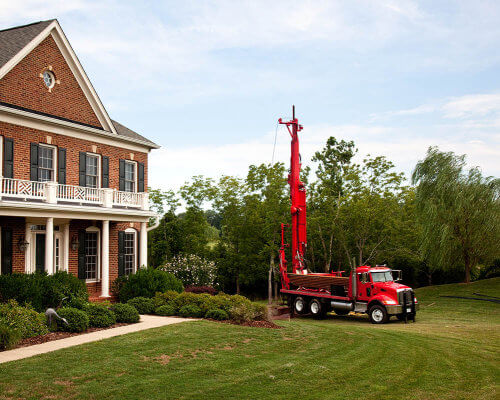What You Need to Know About Building a Well
Having private access to groundwater is very useful in some areas. The first order of business is finding a licensed water well contractor; licensure is a requirement in most states. An unqualified person can’t just decide to start digging, given the possible presence of underground piping, contaminated land and other unfavorable scenarios.
Finding a place to dig a well is the next priority. This step is crucial to minimize the risk of contaminants in the well water (although the method of well construction also helps with this).
The Process of Building a Well
Certification doesn’t end with finding a place to dig the well. You also need to acquire materials that are up to the job so that the well doesn’t collapse under normal use or allow subsurface contaminants to ruin the water supply. A casing structure at the top of the bored hole maintains the structural integrity of the well, and it is from this structure that the pump protrudes for manual access to the water supply down below.
Another reason why the choice of where to construct a well is important has to do with the placement of the borehole. Beneath this there’s an intake that ushers in the groundwater; whether this intake valve is bedrock or gravel depends on the local geology.
The makeup matters for the post-drilling process, which may require jets of compressed air, bailing or a process of grit-removal called surging. Just how much water can be retrieved at a time will be determined during these processes. Once a location has been found, it will take approximately 1-3 days to build the well.

Well Construction Benefits
Using well water instead of city water can save money when irrigating your lawn. Another benefit is that wells are low-maintenance, with only regular visual inspections and annual water quality testing recommended.
Check the well cap often to ensure it hasn’t been damaged, and have the water checked for contaminants every year. Before hiring a service professional to test the water, make sure your well is clean so the results will be accurate. If your water starts to smell different or weird, have it checked immediately.
The majority of wells use an electric pump to draw water up out of the ground. This means if you lose power for any reason, your well will not work until the power is restored. That’s why it’s a good idea to have a backup plan for storing water, keeping the pump running, or both. Many well owners invest in backup generators to power their pumps when the electricity is out.
If you enjoy the security that comes with consistent, private access to clean drinking water, consider contacting a licensed professional to ask if a well might be right for your property.
